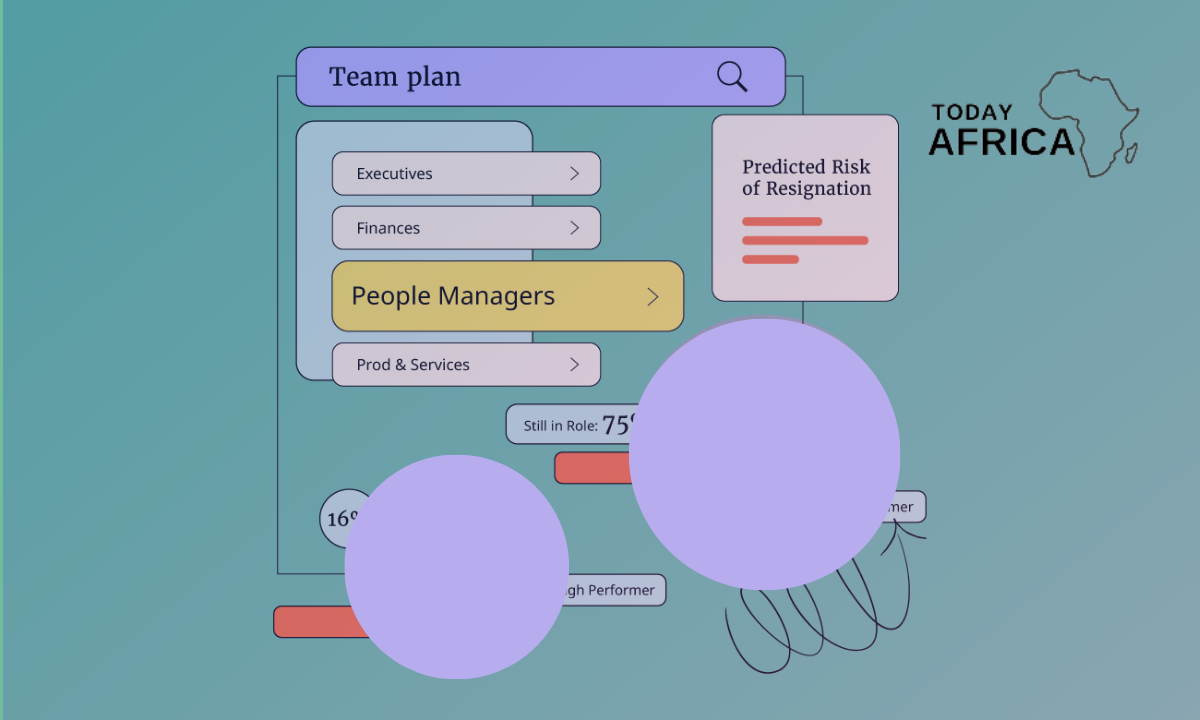Africa’s media scene is rapidly evolving, driven by technological advances, innovative storytelling, and the rise of digital platforms.
Media entrepreneurs in Africa are exploring creative ways to tell local stories, engage audiences worldwide, and build sustainable businesses. However, the challenge of securing adequate funding for these ventures remains a major hurdle.
In this blog post, we’ll discuss the various funding opportunities and how to tap into funding for media entrepreneurs in Africa.
African Media Space
Africa’s media ecosystem is characterized by diversity—in languages, cultures, and distribution channels.
With the expansion of internet penetration and mobile technology, a new generation of consumers is hungry for content that resonates with their unique cultural experiences.
This shift has attracted both local investors and international funding bodies interested in supporting media innovation.
Recent data indicate that digital media consumption across the continent has increased by over 30% in the last few years, with social media platforms such as Facebook, Instagram, and Twitter leading the way.
African media entrepreneurs are not only expected to deliver quality content, but they also need to understand business models that attract funding.
Investors are increasingly looking at ventures that have a clear revenue strategy, a scalable business model, and a strong digital presence.
Funding for media entrepreneurs is not limited to traditional media houses. It includes digital content platforms, online news portals, creative video production companies, podcast channels, and even emerging tech-driven solutions like virtual reality storytelling.
With that in mind, African media entrepreneurs must familiarize themselves with different funding types and sources available.
Types of Funding for Media Entrepreneurs in Africa
Grants and competitions
One of the most popular avenues for securing initial funding is through grants and competitions. Both governmental and non-governmental organizations offer grants specifically designed to boost local media initiatives.
International organizations, such as UNESCO, and regional bodies like the African Union, often launch calls for proposals that support media and culture projects.
Competitive funding opportunities include awards and competitions hosted by media organizations, creative funds, and independent foundations.
Many competitions provide not only financial support but also mentorship, networking opportunities, and visibility within the industry. With funding for media entrepreneurs in mind, these opportunities are designed to help early-stage startups and creative projects gain the traction they need to succeed.
Crowdfunding platforms
Crowdfunding has emerged as a powerful tool for media entrepreneurs who struggle to obtain conventional funding.
Platforms like Kickstarter, Indiegogo, and African-focused sites such as Thundafund allow entrepreneurs to pitch projects directly to the public. Crowdfunding campaigns also offer the added benefit of building an early audience for your content.
For African media entrepreneurs, crowdfunding can be particularly effective when combined with a compelling narrative.
Investors and donors want to feel connected to a project that has tangible community benefits. A strong social media presence and a well-prepared campaign with a video pitch that tells your story are essential for success in this arena.
Venture capital and angel investments
Venture capital (VC) funds and angel investors are increasingly interested in startups that operate within Africa’s creative industries.
These investors typically seek businesses with the potential to scale rapidly while offering robust returns on investment.
For media ventures, demonstrating a clear path to profitability, whether through advertising, subscriptions, or sponsored content, is critical to attracting such funding.
African media entrepreneurs seeking venture capital or angel investments should focus on building a strong business model and be prepared to articulate market demand, competitive advantages, and monetization strategies.
Many investors are looking for projects that can expand beyond local markets into international territories.
Read Also: Top 25 Media Investors in the World
Government and institutional loans
Government-backed loans and institutional funding programs remain a vital resource for many media entrepreneurs. Various African governments have created initiatives to support local media development, innovation, and digital transformation.
Financial institutions, including development banks such as the African Development Bank, have programs tailored to entrepreneurs in creative sectors.
These loans typically offer competitive interest rates and often come with additional benefits like business development support and capacity-building workshops.
However, securing a government loan usually requires a solid business plan, thorough documentation, and sometimes collateral.
Corporate sponsorships and partnerships
Corporate sponsorship is an increasingly viable option for media entrepreneurs, particularly for content that aligns with the strategic interests of large brands.
Corporations looking to bolster their corporate social responsibility (CSR) profiles are investing in media projects that foster community engagement and cultural expression.
This type of funding is often provided in exchange for brand visibility or content integration, making it a mutually beneficial arrangement.

For African media entrepreneurs, partnering with local and international corporations can provide steady funding, access to broader networks, and opportunities for content collaboration.
These partnerships can range from one-off project sponsorships to multi-year content series agreements.
Read Also: Media Entrepreneur: How Africa’s Creators Are Changing the Game
Recent Trends in Funding for Media Entrepreneurs
The evolving landscape of digital media has led to significant shifts in funding trends over the past few years. Here are some of the most relevant trends that African media entrepreneurs should be aware of when seeking funding:
Increased interest from international investors
Global investors are taking a closer look at Africa’s creative and digital industries. With the continent’s young and rapidly growing population, media ventures that harness local talent are positioned for success. Investors are increasingly interested in supporting projects with a high social impact as well as a strong business model.
Rise of hybrid funding models
Many media entrepreneurs are now combining various types of funding to meet their needs. It’s not uncommon to see startups use a mix of crowdfunding, grants, and angel investments. This hybrid approach not only diversifies funding sources but also reduces dependency on a single type of investment.
Digital platforms and social media monetization
Media ventures are increasingly monetizing digital content through platforms such as YouTube, Instagram, and TikTok. This shift towards online revenue streams has made it easier for media entrepreneurs to demonstrate viability and attract additional funding from venture capitalists and corporate sponsors.
Greater emphasis on impact and sustainability
Impact investing is on the rise, with many investors looking for projects that contribute to social change while generating financial returns. African media entrepreneurs who can demonstrate positive social outcomes—whether in the areas of education, civic engagement, or cultural preservation—are likely to attract these types of funds.
Read Also: How to Become a Media Entrepreneur This Year
Steps for Securing Funding for Media Entrepreneurs
For media entrepreneurs eager to secure funding, preparation and persistence are key. Below is a step-by-step guide to help you navigate the application process for different types of funding opportunities:
Develop a business plan
Your business plan is the cornerstone of any funding application. It should outline the mission, vision, market opportunity, competitive landscape, revenue streams, and financial projections for your media venture. Use clear language and back up claims with quantitative data when possible.
Build a strong digital presence
Investors and funding bodies will review your digital footprint, including your website, social media channels, and any public-facing media work. Make sure your online presence is professional, consistent, and reflects the quality of your content. Regularly update your platforms to keep your audience engaged and to demonstrate sustained growth.
Prepare a pitch deck
A concise and visually appealing pitch deck is essential when approaching investors. Your pitch should include:
- An overview of your project and its unique value proposition
- Market research data illustrating the demand for your content
- Evidence of past success or early traction
- Clear financial projections and funding requirements
- A roadmap for scaling your operations and reaching profitability
Network and build relationships
In the media industry, networking can often lead to funding opportunities that aren’t publicly advertised. Attend industry events, join entrepreneurial groups, and connect with mentors who have experience in raising capital. Use both offline and online platforms to maximize your reach.
Leverage mentorship and incubation program
Many organizations offer mentorship and incubation programs specifically for startups in the media and creative industries. These programs often include access to workshops, pitch sessions, and networking events with potential investors. Participating in such programs can enhance your credibility and increase your chances of securing funding.
Follow up and be persistent
The process of securing funding can be lengthy and often involves multiple rounds of meetings and negotiations. Always follow up after meetings and be prepared to refine your proposals based on feedback. Persistence, coupled with adaptability, is critical in the competitive world of media entrepreneurship.

Key Considerations for African Media Entrepreneurs
- Cultural relevance and authenticity: Media projects that resonate with local audiences and reflect authentic stories are more likely to secure funding. Whether you are developing content that explores historical narratives, modern-day challenges, or cultural celebrations, ensure that your project remains true to the local context while also appealing to broader audiences.
- Technological infrastructure and innovation: Investors are increasingly drawn to media ventures that leverage technology for content creation, distribution, and audience engagement. Embracing innovations such as artificial intelligence for content recommendations, augmented reality for storytelling, or data-driven marketing can set your venture apart in the eyes of potential funders.
- Social impact and community engagement: Funding organizations today look for projects that deliver measurable social impact. If your media venture addresses issues such as education, public health, or social justice, be sure to highlight how your content contributes to positive change in society. Demonstrating a strong commitment to community engagement can attract impact investors and grant-making bodies.
- Scalability and revenue models: A scalable business model with clear revenue-generation strategies is crucial for attracting long-term investment. Whether it’s through advertising, subscriptions, content licensing, or sponsorship deals, your financial projections must be realistic and backed by solid market research. Clearly detailing how you intend to grow your audience and increase revenue will help secure funding from both private and institutional sources.
Conclusion
In a rapidly changing media ecosystem, securing funding for media entrepreneurs in Africa is both an opportunity and a challenge.
With the rise of digital platforms, increased investor interest, and the proliferation of innovative funding models, there has never been a better time for African storytellers and media innovators to realize their vision.
Success in funding depends on a strategic blend of a solid business plan, a compelling narrative, technological innovation, and the ability to measure social impact.
Whether you are looking at grants, crowdfunding, venture capital, or corporate sponsorships, it is crucial to understand your funding options, prepare thoroughly for each opportunity, and remain persistent in your efforts.
With determination, authenticity, and a keen focus on social impact, your media venture can become a catalyst for positive change—and a compelling investment for funders worldwide.
Comment and follow us on social media for more tips:
- YouTube: Today Africa Studio
- Facebook: Today Africa
- Instagram: Today Africa
- Twitter: Today Africa
- LinkedIn: Today Africa
















